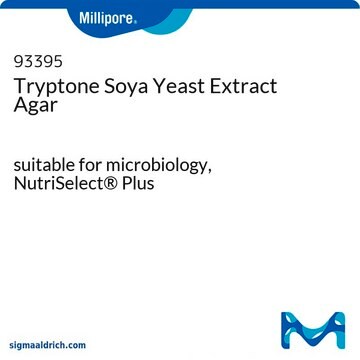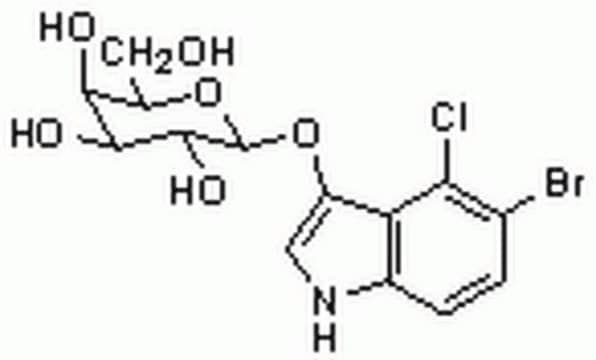83650
L-Rhamnose monohydrate
suitable for microbiology, ≥99.0%, Naturally occurring deoxy sugar that is found primarily in plants and some bacteria
Synonym(s):
6-Deoxy-L-mannose monohydrate, L(+)Rhamnopyranose, 6-Deoxy-L-mannose, L(+)Rhamnopyranose
About This Item
Recommended Products
Quality Level
Assay
≥99.0% (HPLC)
≥99.0%
form
powder
optical activity
[α]20/D +8±0.5°, 2 hr, c = 5% in H2O
ign. residue
≤0.1% (as SO4)
mp
90-95 °C
solubility
H2O: 0.1 g/mL, clear, colorless
anion traces
chloride (Cl-): ≤50 mg/kg
sulfate (SO42-): ≤50 mg/kg
cation traces
As: ≤0.1 mg/kg
Cd: ≤5 mg/kg
Co: ≤5 mg/kg
Cu: ≤5 mg/kg
Fe: ≤5 mg/kg
Ni: ≤5 mg/kg
Pb: ≤5 mg/kg
Zn: ≤5 mg/kg
application(s)
microbiology
storage temp.
10-30°C
SMILES string
O.C[C@@H]1O[C@@H](O)[C@H](O)[C@H](O)[C@H]1O
InChI
1S/C6H12O5.H2O/c1-2-3(7)4(8)5(9)6(10)11-2;/h2-10H,1H3;1H2/t2-,3-,4+,5+,6+;/m0./s1
InChI key
BNRKZHXOBMEUGK-NRBMBCGPSA-N
Looking for similar products? Visit Product Comparison Guide
General description
Rhamnose can also be fermented by several microorganisms like E. coli, Enterobacter, Citrobacter, Klebsiella and some species of Salmonella. Acid production from rhamnose is a characteristic phenotype of Listeria monocytogenes. Therefore, rhamnose can be used for differentiation and identification of bacteria, it is used in media like Rhamnose broth or Phenol red Rhamnose broth.
Application
L-Rhamnose monohydrate is used in many media formulations such as Rhamnose broth or Phenol red Rhamnose broth to facilitate differentiation of bacteria that can ferment the sugar and those that cannot.
An understanding of the rhamnose-containing polysaccharides present in the cell walls of certain bacteria can enable us to identify biosynthetic pathways that can further be used as potential targets for antibacterial therapy.
Storage Class Code
11 - Combustible Solids
WGK
WGK 3
Flash Point(F)
Not applicable
Flash Point(C)
Not applicable
Personal Protective Equipment
Choose from one of the most recent versions:
Already Own This Product?
Find documentation for the products that you have recently purchased in the Document Library.
Customers Also Viewed
Articles
Culture media provides a habitat with suitable nutrients, energy sources, and certain environmental conditions for the growth of microorganisms. The components of the culture media range from simple sugars to peptones, salts, antibiotics, and complex indicators.
Our team of scientists has experience in all areas of research including Life Science, Material Science, Chemical Synthesis, Chromatography, Analytical and many others.
Contact Technical Service










